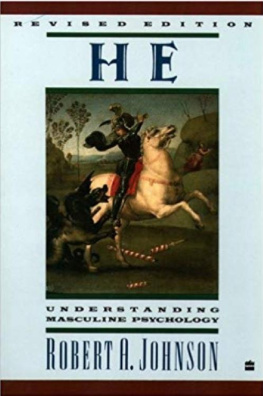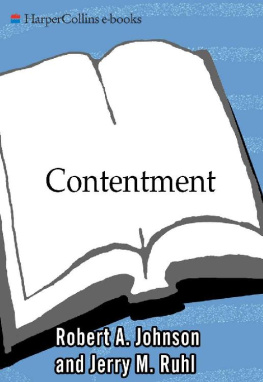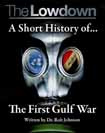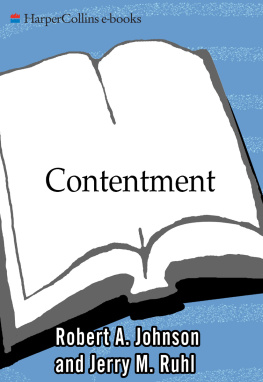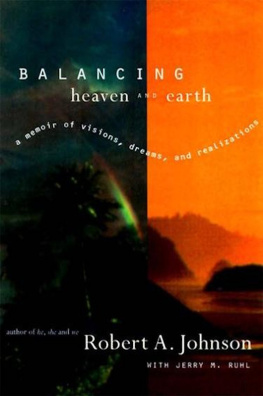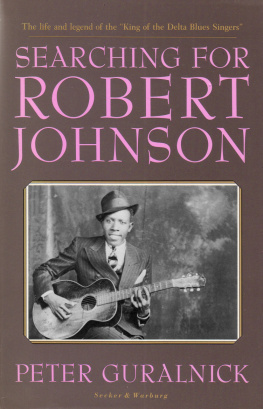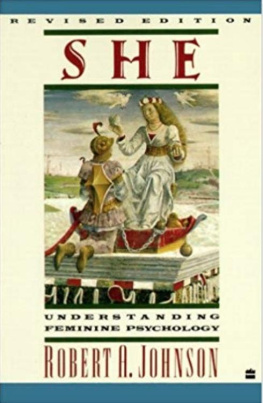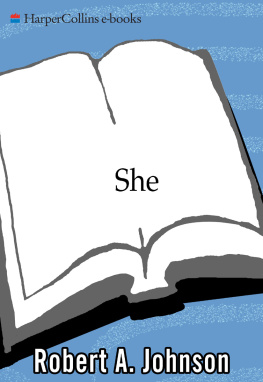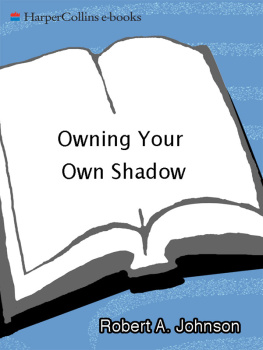He
Understanding Masculine Psychology
Revised Edition
Robert A. Johnson
Contents
Often, when a new era begins in history, a myth for that era springs up simultaneously. The myth is a preview of what is to come, and it contains sage advice for coping with the psychological elements of the time.
In the myth of Parsifals search for the Holy Grail we have such a prescription for our modern day. The Grail myth arose in the twelfth century, a time when many people feel that our modern age began; ideas, attitudes and concepts we are living with today had their beginnings in the days when the Grail myth took form. One can say that the winds of the twelfth century have become the whirlwinds of the twentieth century.
The theme of the Grail myth was much in evidence in the twelfth, thirteenth, and fourteenth centuries. We will be using the French version, which is the earliest written account, taken from a poem by Chrtien de Troyes. There is also a German version by Wolfram von Eschenbach. The English version, Le Morte Darthur by Thomas Malory, comes from the fourteenth century; but by that time it had been elaborated a great deal. The French version is simpler, more direct and nearer to the unconscious; therefore it is more helpful for our purposes.
We must remember that a myth is a living entity, and exists within every person. You will get the true, living form of the myth if you can see it as it spins away inside yourself. The most rewarding mythological experience you can have is to see how it lives in your own psychological structure.
The Grail myth speaks of masculine psychology. This is not to say that it is confined to the male, for a woman participates in her own inner masculinity, though it is less dominant for her. We must take everything that goes into the myth as part of ourselves. We will have to cope with a dazzling array of fair damsels, but must see them too as parts of the masculine psyche. Women, too, will be interested in the secrets of the Grail myth, for every woman has to cope with one of these exotic creatures, the male of the species, somehow, as father, or husband, or son. Also a woman partakes quite directly of the Grail myth as the story of her own interior masculinity. Especially as modern women take more part in the masculine world by embracing a profession, the development of masculinity becomes important to her. A womans masculinity or a mans femininity is closer than one realizes. The insights of this myth will be immediate and practical for our present time.
Our story begins with the Grail castle, which is in serious trouble. The Fisher King, the king of the castle, has been wounded. His wounds are so severe that he cannot live, yet he is incapable of dying. He groans; he cries out; he suffers constantly. The whole land is in desolation, for a land mirrors the condition of its king, inwardly in a mythological dimension, as well as outwardly in the physical world. The cattle do not reproduce; the crops wont grow; knights are killed; children are orphaned; maidens weep; there is mourning everywhereall because the Fisher King is wounded.
The notion that the welfare of a kingdom depends upon the virility or power of its ruler has been a common one, especially among primitive people. There are still kingdoms in the primitive parts of the world where the king is killed when he can no longer produce any offspring. He is simply killed, ceremonially, sometimes slowly, sometimes horribly, because it is thought that the kingdom will not prosper if the king is becoming weak.
The whole Grail castle is in serious trouble because the Fisher King is wounded. The myth tells us that years before, early in his adolescence, when he was out wandering around in the woods doing his knight errantry, the Fisher King came to a camp. All the people of the camp were gone, but there was a salmon roasting on a spit. He was hungry, there was the salmon roasting over the fire, and he took a bit of it to eat. He found that the salmon was very hot. After burning his fingers on it he dropped the salmon and put his fingers into his mouth to assuage the burn. In so doing he got a bit of the salmon into his mouth. This is the Fisher King wound and gives its name to the ruler of much of our modern psychology. Modern suffering man is the heir to this psychological event which took place culturally some eight hundred years ago.
Another version of the story has it that the young Fisher King was overwhelmed with amour one day and was out hunting for some experience of his passion. Another knight, a Muslim pagan, had had a vision of the True Cross and was out searching for some expression of this quest. The two came within sight of each other and, like true knights, each lowered visor and lance and went at the other. There was a terrible clash, the pagan knight was killed and the Fisher King received the wound in his thigh which blighted the kingdom for so many years.
What a sight! The knight of vision and the knight of sensuousness clash in terrible combat. Instinct and nature now suddenly having been touched by a vision of spirit clashing with pure spirit which has been touched by a vision of instinct and nature. Such is the crucible within which the highest evolution can take placeor a deadly conflict capable of psychological destruction.
I shudder at the implications of this clash, for it leaves us the legacy of our sensuous nature killed and our Christian vision terribly wounded. Hardly a modern man escapes this collision in his own life and he may end up in the sad state described in our story. His passion is killed and his vision is badly wounded.
The story of St. George and the dragon, which was adapted from a Persian myth at the time of the crusades, says much the same. In battle with the dragon, St. George, his horse, and the dragon were all mortally wounded. They would all have expired but for the fortuitous event that a bird pecked an orange (or a lime) that was hanging on a tree over St. George and a drop of the life-giving juice fell into his mouth. St. George arose, squeezed some of the elixir into his horses mouth and revived him. No one revived the dragon.
Much is to be learned from the symbol of the wounded Fisher King. The salmon or, more generally, the fish, is one of the many symbols of Christ. As in the story of the Fisher King coming upon the roasting salmon, a boy in his early adolescence touches something of the Christ nature within himself but touches it too soon. He is unexpectedly wounded by it and drops it immediately as being too hot. But a bit of it gets into his mouth and he can never forget the experience. His first contact with what will be redemption for him later in his life is a wounding. This is what turns him into a wounded Fisher King. The first touch of consciousness in a youth appears as a wound or as suffering. Parsifal finds his Garden of Eden experience by way of the bit of salmon. That suffering stays with him until his redemption or enlightenment many years later.
Most western men are Fisher Kings. Every boy has naively blundered into something that is too big for him. He proceeds halfway through his masculine development and then drops it as being too hot. Often a certain bitterness arises, because, like the Fisher King, he can neither live with the new consciousness he has touched nor can he entirely drop it.
Every adolescent receives his Fisher King wound. He would never proceed into consciousness if it were not so. The church speaks of this wounding as the felix culpa , the happy fall which ushers one into the process of redemption. This is the fall from the Garden of Eden, the graduation from naive consciousness into self consciousness.


